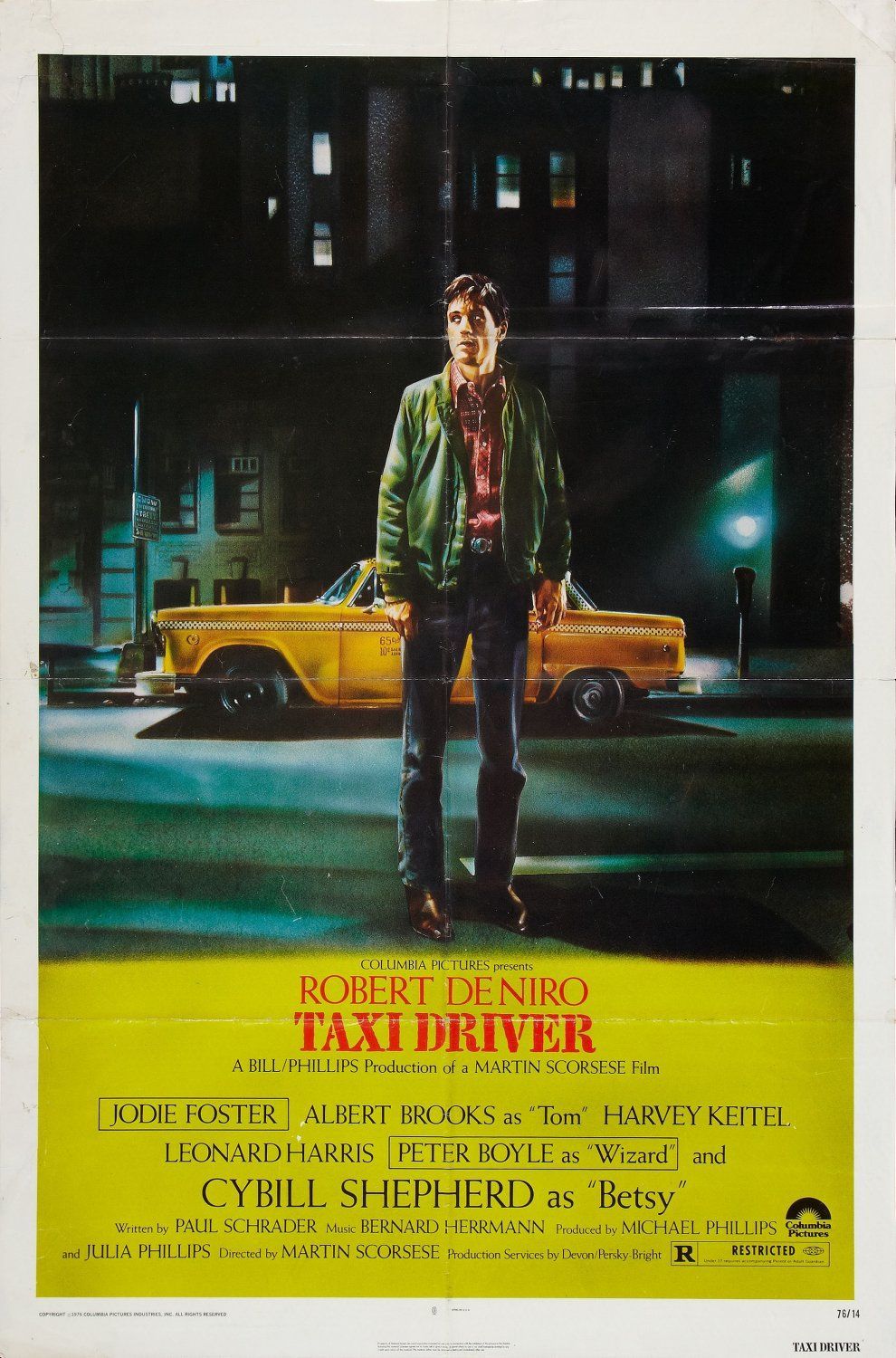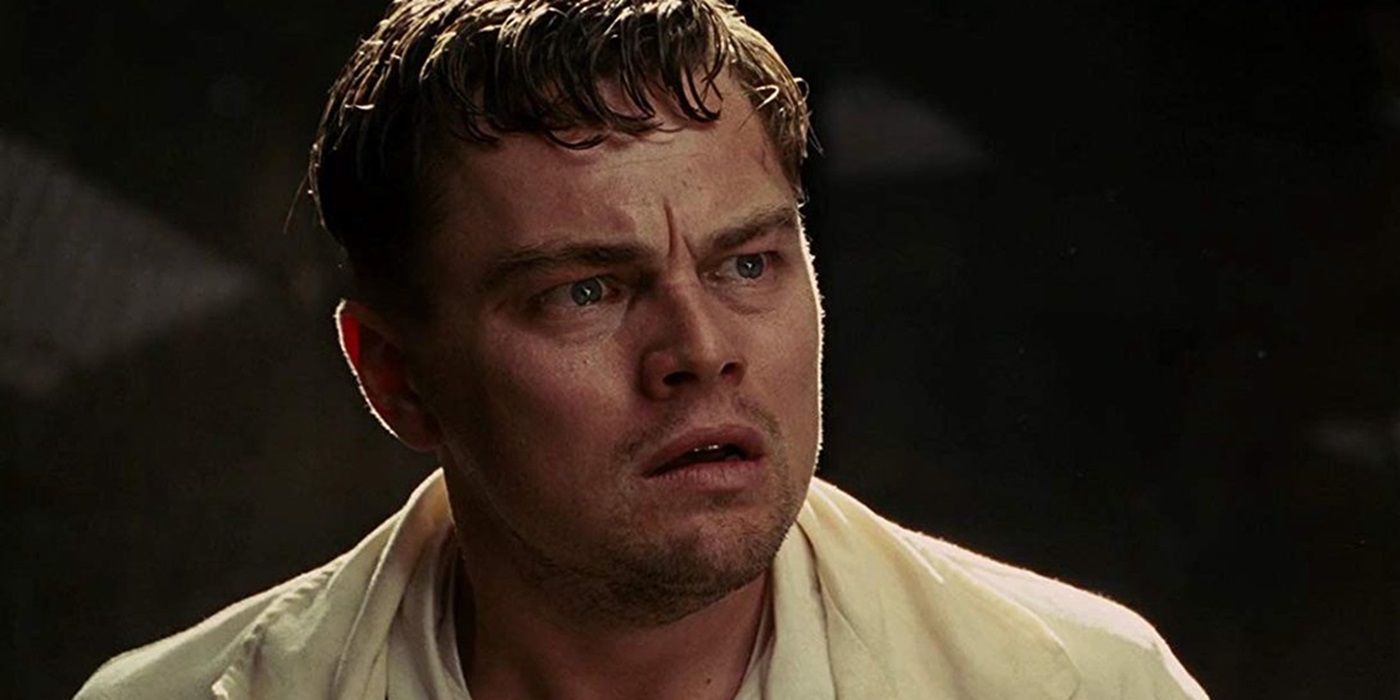[ad_1]
When watching Taxi Driver, it feels as though you’re watching something illicit and unpermitted for public access. The 1976 classic by Martin Scorsese changed the cinematic landscape for the foreseeable future, as it showed that the art form could express the darkest core of the human soul with a precise level of clarity and artful storytelling. With an uncanny visual aesthetic by Scorsese, a tight, bone-chilling script by Paul Schrader, and a hauntingly evocative performance by Robert De Niro, Taxi Driver leaves an irreversible impact on its viewers, especially those who witness the twisted worldview of Travis Bickle (De Niro) as budding cinephiles. It certainly left a seismic imprint on Leonardo DiCaprio, who would later develop a fruitful partnership with Scorsese in his rise to becoming the defining actor of his generation, much like De Niro.
‘Taxi Driver’ Was a Formative Film For Leonardo DiCaprio
Martin Scorsese’s most recent film, Killers of the Flower Moon, was a monumental event for numerous reasons, with a major draw being the collaboration between the director’s two prominent leading men throughout his 50-year career. For only the second time (the first being This Boy’s Life in 1993), Leonardo DiCaprio and Robert De Niro acted on-screen together in Flower Moon, with the latter playing the domineering uncle to the former’s submissive pawn in his quest for genocidal power. Since DiCaprio’s first collaboration with Scorsese, Gangs of New York, drawing parallels to De Niro is understandable. Like his Scorsese avatar predecessor, DiCaprio, following his breakthrough as a public icon in Titanic, dedicated himself to working with the finest directors and playing the least glamorous and most morally ambiguous characters possible. Of course, his fame has never waned, and most of his films are surefire hits at the box office, but DiCaprio’s unwillingness to coast on his movie star power is evident in his tendency to suppress his unmistakable beauty and charm.
DiCaprio’s inclination toward disreputable anti-heroes emerged at a young age, long before he received any Oscar nominations. In an NPR interview, promoting his role as J. Edgar Hoover in the eponymous Clint Eastwood biopic, DiCaprio invoked a film with a protagonist with even more thorny moral complexities than Hoover. According to DiCaprio, Taxi Driver, the story of a Vietnam vet and insomniac loner’s harrowing descent into self-destruction in New York City, is “the greatest independent film of all time.” Decades later, he still cringes when recalling the scene where Travis takes Betsy (Cybill Shepherd) to a pornographic movie theater on a first date. Travis’ perverse idea of a romantic night out made DiCaprio feel “truly embarrassed,” the first time he’s felt that for any character. Scorsese perfectly captures this universal feeling of wincing humiliation in a scene when Travis calls Betsy on the phone, where he pulls the camera away from the phone booth out of sheer embarrassment over a desperate Travis trying to amend his ill-advised behavior.
‘Taxi Driver’ Signaled Martin Scorsese’s Interest in Complex Character Studies
No one is questioning the superlative honor in Taxi Driver’s favor, but its credentials as an “independent film” are suspect, as the film was a studio picture released by Columbia. The film, also starring Harvey Keitel, Peter Boyle, Albert Brooks, and a young Jodie Foster, was critically acclaimed and received four Oscar nominations, and it announced Scorsese and De Niro as the cinematic voices of the immensely talented New Hollywood generation. Based on its subject, unflinching portrait of psychological decay, and candor about the underbelly of America post-Vietnam, Taxi Driver becoming a mainstream, seminal classic in the canon of American cinema and not an underground experimental film only available in low-resolution quality, seems like a glitch in the matrix. In this regard, the film is certainly “independent” from its fellow reverential classics on the AFI Top 100 or anything released in theaters in 1976.
The iconoclastic nature of Taxi Driver has practically made it a sacred text for budding cinephiles discovering the power of the cinematic medium under the guidance of a brilliant visionary. Martin Scorsese and Paul Schrader characterize Travis Bickle as the embodiment of our worst nightmares–someone who has lost touch with reality due to all-encompassing disillusionment with the world. Taxi Driver is the rare film that pushes thematic boundaries without resorting to crass sensationalism, and Scorsese’s confidence to tell the story from Travis’ perspective challenges the audience to reckon with themselves as they watch this critical but sympathetic portrait of a morally corrupt character. This film, given the highest level of praise by Leonardo DiCaprio, laid the groundwork for his collaborations with Scorsese, including The Aviator, The Departed, and The Wolf of Wall Street, films about complex figures with a rotten core that are nonetheless entrancing.
Taxi Driver is available to stream on Paramount+ in the U.S.

A mentally unstable veteran works as a nighttime taxi driver in New York City, where the perceived decadence and sleaze fuels his urge for violent action.
- Release Date
-
February 9, 1976
- Runtime
-
114 Minutes
[ad_2]
Source link





